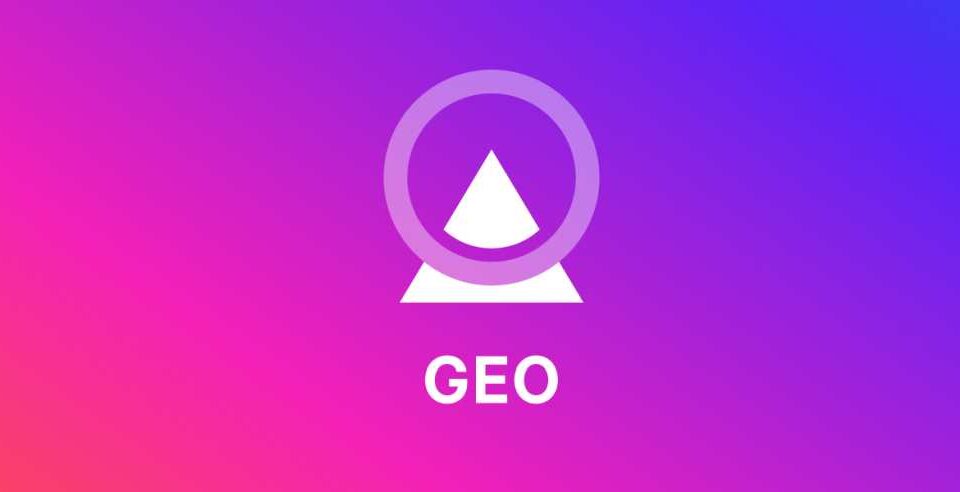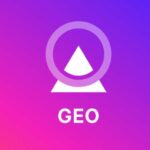The Graph launches Geo Genesis: Unleashing the power of knowledge graphs in Web3

Knowledge Graphs have long been a cornerstone of organizing structured information, yet their potential in Web3 has remained largely untapped. That changes today with The Graph’s launch of Geo Genesis, a groundbreaking application designed to make Knowledge Graphs accessible and practical for everyone. By enabling users—whether technically skilled or not—to create and manage collaborative “Spaces,” Geo Genesis is ushering in a new era where knowledge takes center stage in the decentralized ecosystem.
The launch of Geo Genesis by The Graph comes at a pivotal moment in the broader tech landscape, especially Meta’s recent decision to end its third-party fact-checking program and pivot toward Community Notes. Meta’s embrace of a more community-driven approach to content verification underscores a growing trend: the shift from centralized oversight to decentralized, community-led governance. This aligns closely with Geo Genesis’s mission of empowering communities to collaboratively organize and govern knowledge.
What is Geo Genesis?
Geo Genesis is The Graph’s newest web application, built with simplicity and accessibility in mind. At its heart are Spaces, collaborative hubs where communities can organize, share, and govern knowledge. These hubs make it easier for individuals and groups to work together while maintaining decentralized governance. The application incorporates modular governance tools using the Aragon OSx framework, allowing communities to customize decision-making processes as their needs evolve.
Unlike traditional tools, Geo Genesis eliminates technical barriers. This means anyone—not just developers—can contribute to creating and managing Knowledge Graphs. By focusing on user accessibility, The Graph aims to broaden participation and make Web3’s benefits available to more people.
A Leap Forward for Knowledge Graphs
As Yaniv Tal, co-founder of The Graph and founder of Geo, explains, the core of Web3 isn’t just about financial assets—it’s about how information is structured and shared. Geo Genesis takes this vision and turns it into a reality, making Knowledge Graphs dynamic and community-driven.
The introduction of the GRC-20 data standard further strengthens this effort. This standard enables Knowledge Graphs to function with greater interoperability, ensuring they can adapt and scale to meet diverse use cases. With Geo Genesis, communities can now organize their information in a way that is open, verifiable, and reusable—core principles of the decentralized web.
What to Expect with Geo Genesis
Initially launching in an early access phase, Geo Genesis offers a default governance structure with two key roles: Editors and Members. Editors are experts who vote on governance decisions, while Members contribute to spaces and participate in discussions. Early adopters can request invites to create and explore Spaces, where they’ll see examples of how Knowledge Graphs can be applied, such as curating crypto news to structure stories and facts more effectively.
Over time, Geo Genesis will allow communities to fully customize their governance frameworks. This flexibility ensures that Spaces can evolve with their users’ needs, creating a new wave of decentralized applications that focus on knowledge-sharing.
Why This Matters
The Graph has already established itself as Web3’s go-to solution for indexing and accessing blockchain data. Since its launch in 2018, developers have built thousands of subgraphs for applications spanning over 80 blockchains. With Geo Genesis, The Graph is taking its vision to the next level, creating a platform that puts Knowledge Graphs at the forefront of the decentralized internet.
By bridging the gap between technical expertise and everyday users, Geo Genesis empowers communities to organize knowledge collaboratively. This launch not only expands the possibilities for decentralized applications but also redefines how information is shared, governed, and utilized in Web3.
With Geo Genesis, The Graph introduces Spaces, decentralized hubs designed to facilitate knowledge sharing, governance, and collaboration. These Spaces offer built-in tools for consensus-building, leveraging the modular Aragon OSx framework, making them a natural fit for use cases like Meta’s Community Notes. The customizable governance structures within Geo Genesis could provide a framework for communities to establish credibility, track reputation, and foster transparency—addressing challenges that centralized models like Meta’s prior fact-checking program have faced.
As Meta moves to decentralize content validation with Community Notes, tools like Geo Genesis could serve as a blueprint for creating interconnected knowledge systems that are open, verifiable, and community-driven. By bridging gaps between technical and non-technical participants, Geo Genesis lays the groundwork for a decentralized future where communities, not centralized authorities, shape the flow of knowledge. This paradigm shift, spearheaded by The Graph, reflects a broader movement across Web3 to empower individuals and communities in managing information, governance, and accountability.
Founded in 2018, The Graph is a decentralized data marketplace that has revolutionized blockchain indexing. By standardizing subgraphs and providing reliable data services, it has become a cornerstone for Web3 developers. With its latest innovations, including Geo Genesis, The Graph continues to lead the charge in shaping the decentralized internet for the future.
Since its debut about seven years ago, The Graph has attracted tens of thousands of developers who have created subgraphs for decentralized applications spanning more than 80 blockchains, including Ethereum, Arbitrum, Optimism, Base, Polygon, Celo, Fantom, Gnosis, and Avalanche.




